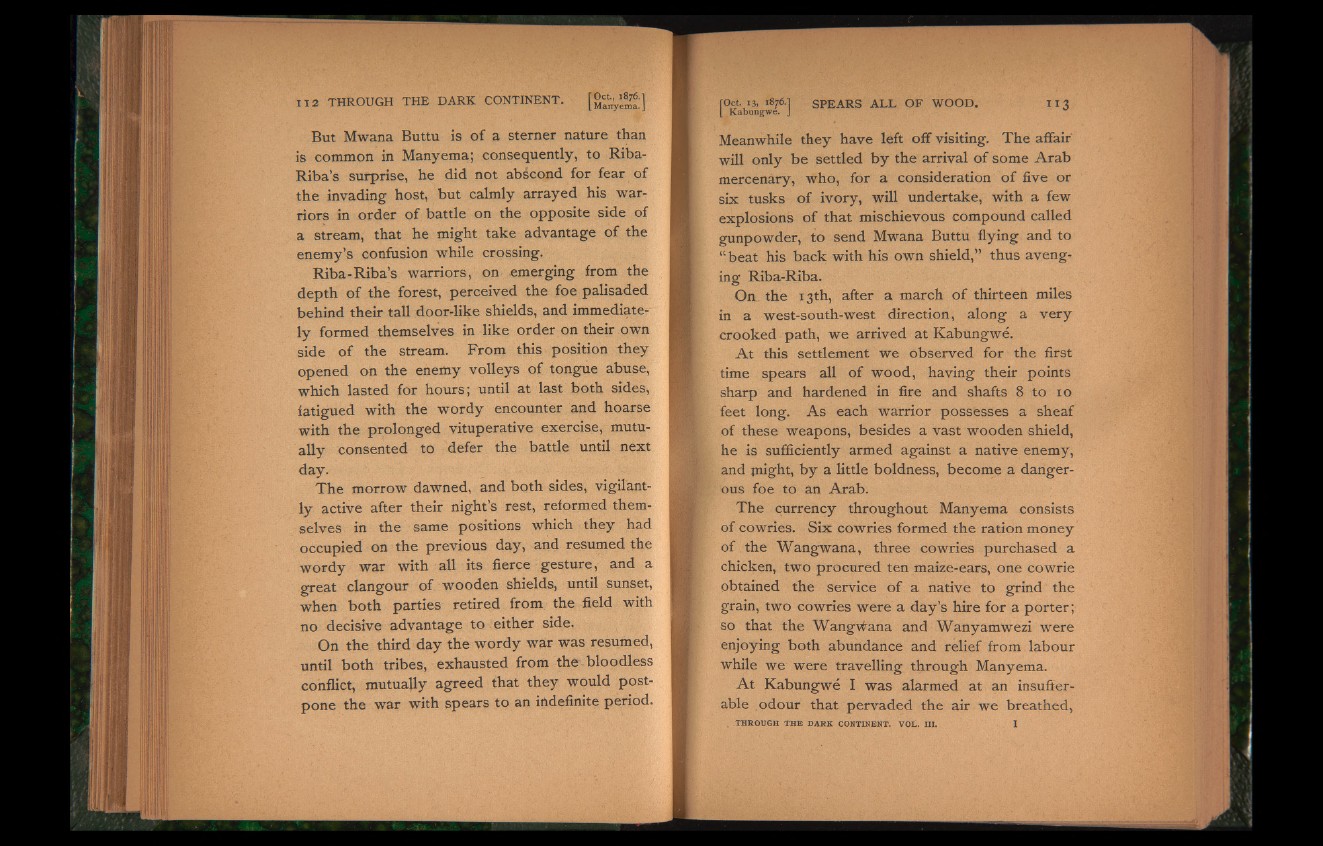
But Mwana Buttu is of a sterner nature than
is common in Manyema; consequently, to Riba-
Riba’s surprise, he did not abscond for fear of
the invading host, but calmly arrayed his warriors
in order of battle on the opposite side of
a stream, that he might take advantage of the
enemy’s confusion while crossing.
Riba-Riba’s warriors, on emerging from the
depth of the forest, perceived the foe palisaded
behind their tall door-like shields, and immediately
formed themselves in like order on their own
side of the stream. From this position they
opened on the enemy volleys of tongue abuse,
which lasted for hours; until at last both sides,
fatigued with the wordy encounter and hoarse
with the prolonged vituperative exercise, mutually
consented to defer the battle until next
day.
The morrow dawned, and both sides, vigilantly
active after their night’s rest, reformed themselves
in the same positions which they had
occupied on the previous day, and resumed the
wordy war with all its fierce gesture, and a
great clangour of wooden shields, until sunset,
when both parties retired from the field with
no decisive advantage to either side.
On the third day the wordy war was resumed,
until both tribes, exhausted from the bloodless
conflict, mutually agreed that they would postpone
the war with spears to an indefinite period.
Meanwhile they have left off visiting. The affair
will only be settled by the arrival of some Arab
mercenary, who, for a consideration of five or
six tusks of ivory, will undertake, with a few
explosions of that mischievous compound called
gunpowder, to send Mwana Buttu flying and to
“ beat his back with his own shield,” thus avenging
Riba-Riba.
On the 13th, after a march of thirteen miles
in a west-south-west direction, along a very
crooked path, we arrived at Kabungwe.
At this settlement we observed for the first
time spears all of wood, having their points
sharp and hardened in fire and shafts 8 to 10
feet long. As each warrior possesses a sheaf
of these weapons, besides a vast wooden shield,
he is sufficiently armed against a native enemy,
and might, by a little boldness, become a dangerous
foe to an Arab.
The currency throughout Manyema consists
of cowries. Six cowries formed the ration money
of the Wangwana, three cowries purchased a
chicken, two procured ten maize-ears, one cowrie
obtained the service of a native to grind the
grain, two cowries were a day’s hire for a porter;
so that the Wangvfrana and Wanyamwezi were
enjoying both abundance and relief from labour
while we were travelling through Manyema.
At Kabungwe I was alarmed at an insufferable
.odour that pervaded the air we breathed,
THROUGH Th e d a r k CONTINENT. VOL. III. I